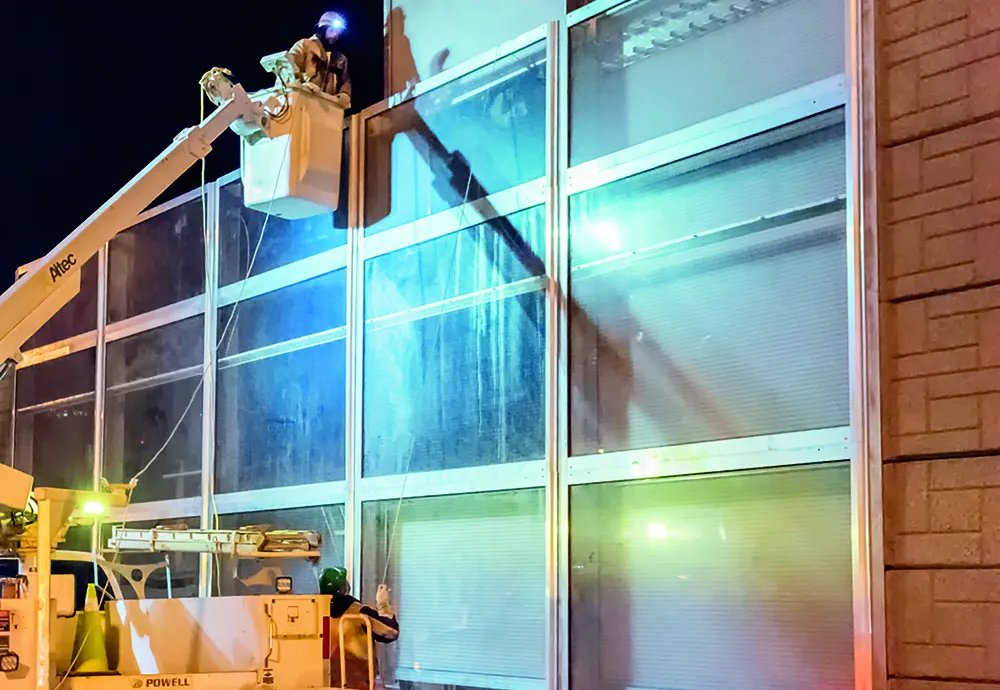In the US, the city of San José and Intel are collaborating to further the city's Green Vision initiative with the use of Intel technology. The pilot program, known as Smart Cities USA, is Intel's first smart city implementation in the United States and is intended to improve air and water quality, reduce noise pollution, and increase transportation efficiency.
According to Intel, the scalability of its architecture provides the intelligence and flexibility necessary for cities to quickly deploy a range
June 13, 2014
Read time: 2 mins
In the US, the city of San José and 4243 Intel are collaborating to further the city's Green Vision initiative with the use of Intel technology. The pilot program, known as Smart Cities USA, is Intel's first smart city implementation in the United States and is intended to improve air and water quality, reduce noise pollution, and increase transportation efficiency.
According to Intel, the scalability of its architecture provides the intelligence and flexibility necessary for cities to quickly deploy a range of smart city solutions for everything from air and water quality to traffic and parking management to communications systems and other city infrastructure.
San José, known as the capital of Silicon Valley, is installing a network of sensors to that uses Intel technology to measure characteristics such as particulates in the air, noise pollution and traffic flow. Such measurement data will produce meaningful insights that will lead to improvements in air quality, noise, transportation efficiency, environmental sustainability, health and energy efficiency.
"Our city is strongly committed to our Green Vision, which is our roadmap to becoming the clean-tech innovation centre of the world," said San José Mayor Chuck Reed. "Public-private partnerships are key to creating jobs and enhancing the quality of life for our residents. By working with Intel and using its technology and expertise, we can gather critical data, identify where we can make improvements, and make good decisions to be more efficient with our resources."
"To help improve quality of life in San José, we're exploring new ways of capturing and sharing localised information to our residents," said Kerrie Romanow, director of San José's Environmental Services Department. "With better information, we tend to make better decisions. We're optimistic that the real-time air quality data will help our staff understand how we can positively influence the environment right here in San José as well as regionally and globally."
According to Intel, the scalability of its architecture provides the intelligence and flexibility necessary for cities to quickly deploy a range of smart city solutions for everything from air and water quality to traffic and parking management to communications systems and other city infrastructure.
San José, known as the capital of Silicon Valley, is installing a network of sensors to that uses Intel technology to measure characteristics such as particulates in the air, noise pollution and traffic flow. Such measurement data will produce meaningful insights that will lead to improvements in air quality, noise, transportation efficiency, environmental sustainability, health and energy efficiency.
"Our city is strongly committed to our Green Vision, which is our roadmap to becoming the clean-tech innovation centre of the world," said San José Mayor Chuck Reed. "Public-private partnerships are key to creating jobs and enhancing the quality of life for our residents. By working with Intel and using its technology and expertise, we can gather critical data, identify where we can make improvements, and make good decisions to be more efficient with our resources."
"To help improve quality of life in San José, we're exploring new ways of capturing and sharing localised information to our residents," said Kerrie Romanow, director of San José's Environmental Services Department. "With better information, we tend to make better decisions. We're optimistic that the real-time air quality data will help our staff understand how we can positively influence the environment right here in San José as well as regionally and globally."








